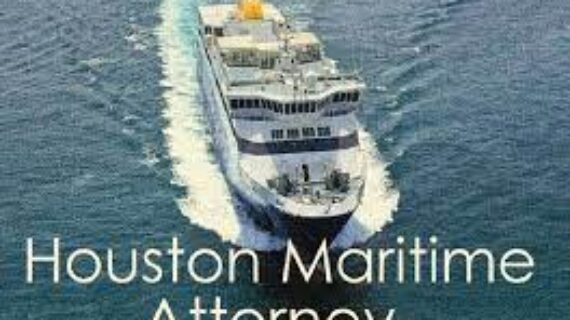
Houston’s Legal Waters: Understanding Maritime Accident Law in the USA
**Introduction:**
Houston, Texas, stands as a powerhouse in the maritime industry, its port serving as a vital gateway for trade and commerce. With such prominence, understanding the intricacies of maritime accident law in Houston becomes imperative. This comprehensive exploration delves into the legal waters that govern maritime activities in the USA, focusing on Houston’s unique position and the laws that shape its maritime landscape.
**1. Historical Context:**
Houston’s maritime history is deeply interwoven with the city’s economic growth. The port’s evolution from a regional trade hub to a global player has influenced the development of maritime accident law. Historical incidents, legislative milestones, and the city’s economic ties to the Gulf of Mexico contribute to the foundation of current legal frameworks.
**2. Legal Foundations:**
a. *Jones Act:* Enacted in 1920, the Jones Act, a cornerstone of maritime law, governs maritime commerce and workers’ rights. It plays a pivotal role in determining liability for accidents involving vessels and maritime workers.
b. *Outer Continental Shelf Lands Act (OCSLA):* For offshore activities, OCSLA extends federal law to the outer continental shelf, impacting jurisdiction, environmental regulations, and safety standards.
c. *Federal Agencies:* The Coast Guard, Bureau of Safety and Environmental Enforcement (BSEE), Occupational Safety and Health Administration (OSHA), and Environmental Protection Agency (EPA) collaborate to enforce safety and environmental regulations.
**3. Jurisdictional Challenges:**
Houston’s port is a bustling nexus of domestic and international trade, leading to jurisdictional challenges in maritime accident cases. Clarifying the legal boundaries and jurisdictional nuances is crucial for ensuring fair and efficient legal proceedings.
**4. Worker Protections and Rights:**
Houston’s maritime workforce faces unique challenges, prompting the implementation of protective measures like the Longshore and Harbor Workers’ Compensation Act (LHWCA) and the Seaman’s Protection Act. An in-depth analysis of these laws reveals the rights and safeguards afforded to maritime workers.
**5. Environmental Regulations:**
Houston’s port activities, including oil and gas operations, necessitate stringent environmental regulations. The legal response to oil spills, chemical releases, and environmental damages involves multiple federal agencies, reflecting the city’s commitment to ecological preservation.
**6. Landmark Cases:**
Recent landmark cases in Houston illuminate the evolving nature of maritime accident law. Noteworthy cases involving oil spills, vessel collisions, and offshore incidents provide insights into legal precedents and judicial interpretations.
**7. Legislative Changes and Adaptations:**
Houston’s maritime legal landscape is not static; it adapts to industry changes and safety requirements. An examination of recent legislative changes, amendments, and proposed bills reveals the city’s commitment to fostering a safe and accountable maritime environment.
**8. Technological Advancements and Legal Implications:**
The integration of advanced technologies, such as artificial intelligence (AI) in safety systems and real-time monitoring, shapes safety practices. The legal implications of these technological advancements are explored to understand their role in preventing accidents and allocating liability.
**9. International Collaborations and Cross-Border Incidents:**
Given Houston’s international trade ties, navigating cross-border incidents requires cooperation and collaboration. Understanding the city’s involvement in international agreements and collaborations ensures a coordinated response to global maritime challenges.
**10. Challenges and Opportunities:**
a. *Crisis Management:* Houston’s legal waters face challenges in crisis management during major accidents. A thorough examination of crisis response protocols and their legal ramifications provides insights into improving future responses.
b. *Environmental Stewardship:* Balancing economic growth with environmental stewardship presents a challenge. Legal frameworks that promote sustainable practices while facilitating economic activities are explored.
c. *Alternative Dispute Resolution:* The complexity of maritime accident cases often leads to lengthy litigation. Exploring trends in alternative dispute resolution mechanisms, such as arbitration and mediation, provides insights into efficient resolution processes.
**11. Economic Impact:**
Houston’s maritime activities contribute significantly to the local and national economy. An analysis of the economic impact, job creation, and revenue generation stemming from maritime operations underscores the importance of a thriving maritime industry.
**12. Future Outlook:**
Examining the future of maritime accident law in Houston involves anticipating emerging trends, technological advancements, and legislative developments. A forward-looking perspective explores the measures needed to ensure a robust legal framework that aligns with the evolving needs of the maritime sector.
**Conclusion:**
Houston’s legal waters, shaped by historical evolution, legislative frameworks, and global trade dynamics, define the city’s maritime accident law. This comprehensive analysis underscores the need for a nuanced understanding of the legal landscape, emphasizing the importance of adaptability, collaboration, and sustainability. As Houston continues to be a vital player in the maritime industry, its legal waters serve as a model for navigating the complex intersection of economic growth, environmental stewardship, and the well-being of maritime workers.
Author
siamak callimi
https://heylink.me/universalloveltd/






Leave a Reply